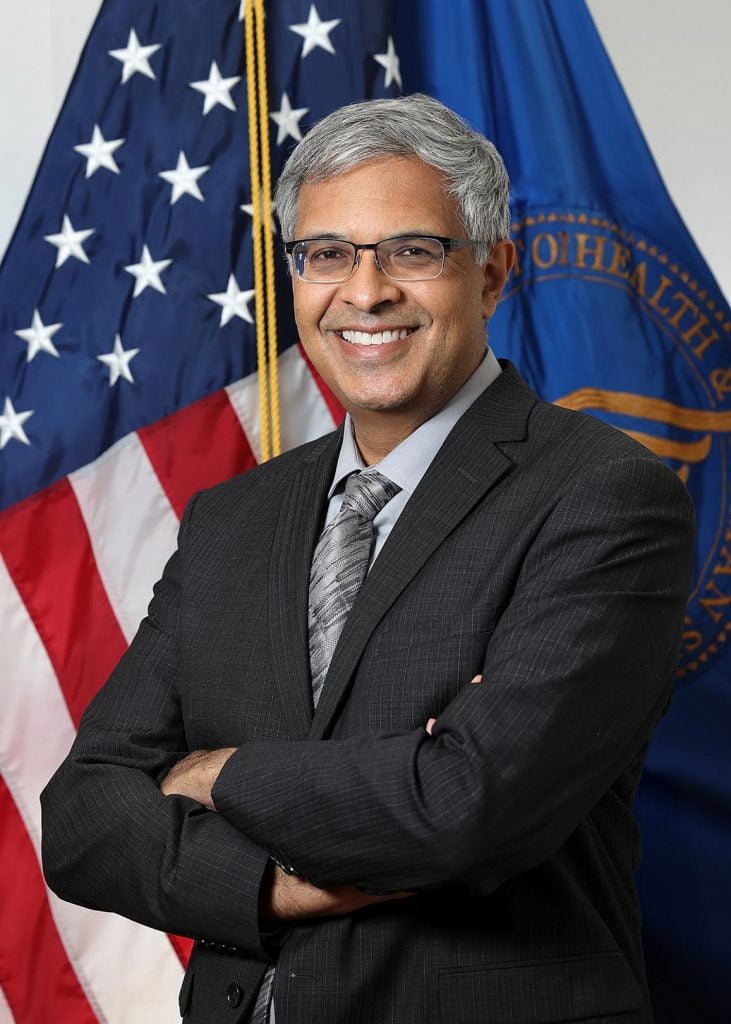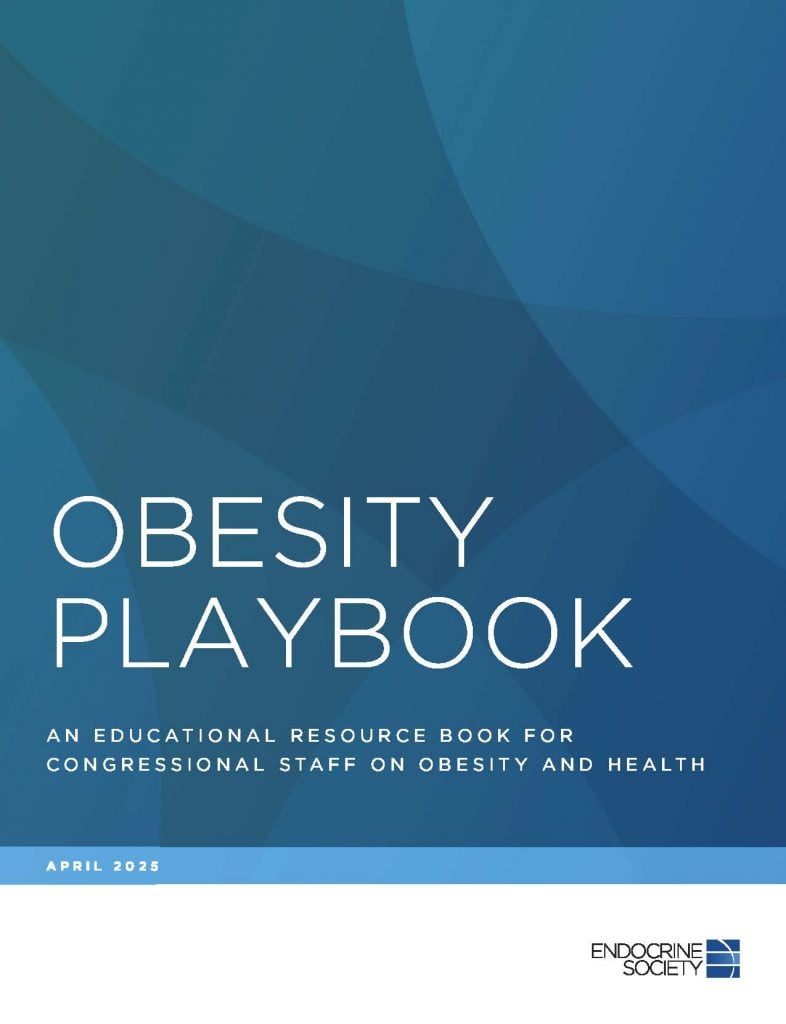Endocrine Society is Advocating for You
We know this has been an extraordinary turbulent and disruptive time for U.S. researchers and our colleagues around the world. Since January, there have been a myriad of U.S. executive actions affecting researchers, including cuts to research, firing of federal workers, rescinded grants, and withdrawn funding opportunities.
In early April, a judge issued a permanent injunction on the federal government’s attempt to cap the National Institutes of Health’s (NIH’s) indirect costs at 15%. While this is a win for researchers, a media report indicates that the administration plans to appeal the ruling. Reports about funding freezes at institutions in the U.S. continue to populate. The administration has frozen NIH funding for grants issued to Columbia University. This has resulted in a freeze on the Diabetes Prevention Program Outcome Study (DPPOS), as Columbia served as the coordinating institution for DPPOS, and threatens the care of diabetes patients and the continuation of these studies at 30 different U.S. institutions in 21 states.
At the time this article was written, Northwestern University, Cornell University, and Harvard University have also had federal research funds frozen by the current administration.
We are deeply concerned about the impact that these actions have on our members and want to share some of the actions that we are taking to protect research.
- We participated in two Capitol Hill days, flying our members to Washington to meet with dozens of lawmakers to describe the impact of cuts to research.
- We are collecting stories about the impacts to endocrine research programs and sharing these with congressional offices so that they can understand the disruption.
- We have submitted testimony to the House Appropriations Committee urging it to provide increased funding to the NIH and protect the agency from recissions or other administration actions to claw back funding.
- We have issued statements to the press, urging lawmakers to restore funding to critical studies and oppose firings and cuts to the NIH.
- We have issued multiple advocacy campaigns to give members the opportunity to weigh in directly with their elected officials.
We will continue to educate Congress and fight to protect the NIH, but we need your help. Please send your stories about the impacts of these funding freezes and policy changes to [email protected] so that we can illustrate the harm these cuts are having. We also urge our U.S. members to participate in our advocacy campaigns and share these campaigns with your colleagues.
NIH Director Sets Priorities
Following his Senate confirmation in March, Jayanta (Jay) Bhattacharya, MD, PhD, began his role as director of the National Institutes of Health (NIH) on April 1. Through an email to NIH staff, Bhattacharya introduced five priority areas, listed below, that he will be directing the NIH to focus on:

1. Focus on improving population health: address the health needs of Americans, including the chronic disease crisis.
2. Reproducibility and rigor: the NIH will address and solve the reproducibility crisis.
3. Innovation and collaboration: To be at the forefront of biomedical innovation, innovative technologies, ideas, and approaches will be embraced.
4. Research safety and transparency: experiments should pose no risk of harm to humans and must maintain the highest ethical standards and transparency.
5. Academic freedom: varied perspectives will be valued and encouraged.
Bhattacharya lifted the travel ban for NIH staff, allowing staff to travel for most conferences and meetings again. He also has resumed publication of study section and advisory council meetings in the Federal Register and some notices are returning to the weekly NIH grants guide. Though some but not all institutes and centers have yet to publish their advisory council meetings, further delaying the grant review and awards process for researchers.
The Endocrine Society Continues Obesity Education Initiative for Policymakers
On April 3, the Endocrine Society released an updated version of our “Obesity Playbook,” an educational resource guide on obesity for Members of Congress and their staff.
Members of Congress and the new administration have expressed interest in addressing obesity, one of the costliest chronic diseases in the U.S. We designed the Playbook to provide members of Congress and their staff with a “go-to” resource about obesity with information to inform them about obesity so that they can address it effectively. The Playbook includes obesity prevalence data, information about the cost burden of obesity, the impact obesity has on our military and national security, and treatment options, including the latest information about anti-obesity medications (AOM) and drug compounding.
The Playbook is one component of our Obesity Education Initiative (see https://www.endocrine.org/advocacy/priorities-and-positions/obesity for more information). The initiative, supported by Lilly and Novo Nordisk, includes educational briefings for members of Congress and staff on obesity, media resources including podcasts and science writer conferences, and other educational materials.
Obesity in the News: CMS Rulemaking and Preventive Services Task Force Proposal
On April 4, the Centers for Medicare and Medicaid Services (CMS) announced that it would not finalize a proposal that would have allowed Medicare and Medicaid to cover anti-obesity medications (AOMs) for weight loss.
The Society has shared our disappointment with the administration and media that CMS chose not to implement this proposal, which was included in a rule finalizing payment policies for Medicare Part D and Medicare Advantage. We are concerned about the impact this will have on Medicare and Medicaid beneficiaries with limited incomes. While CMS decided to not move forward with the coverage rule proposal, the United States Preventive Services Task Force (USPSTF) announced this week that it will develop draft recommendations looking at whether AOMs can affect health outcomes such as cardiovascular disease. If the task force gives the recommendations a grade of “A” or “B,” this could mean that private insurers must cover AOMs.
The Society will monitor this closely and will weigh-in at the appropriate time to encourage the task force to issue a favorable recommendation. The Society will also continue to advocate for the Treat and Reduce Obesity (TROA) which would allow CMS to cover AOMs.


